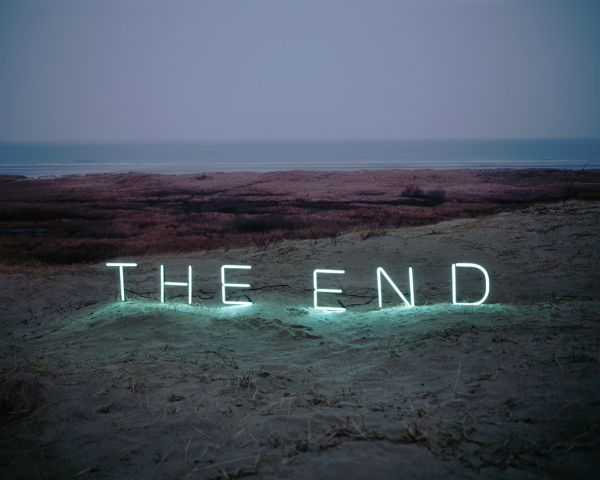Jung Lee combines neon and landscape, words and nature, in her photo series Aporia to produce works that hit a little too close to home, are deeply resonant and just a touch painful…
Originally based in Seoul, the Korean artist moved to London to pursue her career, eventually graduating from the Royal College of Art. In the midst of moving countries she learnt the English language and found the gaping hole between what is taught and how people speak so wide that she began seeing it in other things around her. The complexities of love and ones inability to express it drives the piece as Lee discovered that words could “never embody everything”, and that language itself might “be a trap”. Her fascination with words in their evocative simplicity is evident and the decrepit and vast scene she sets them against creates a feeling of endlessness, an eternal light among natural decline.
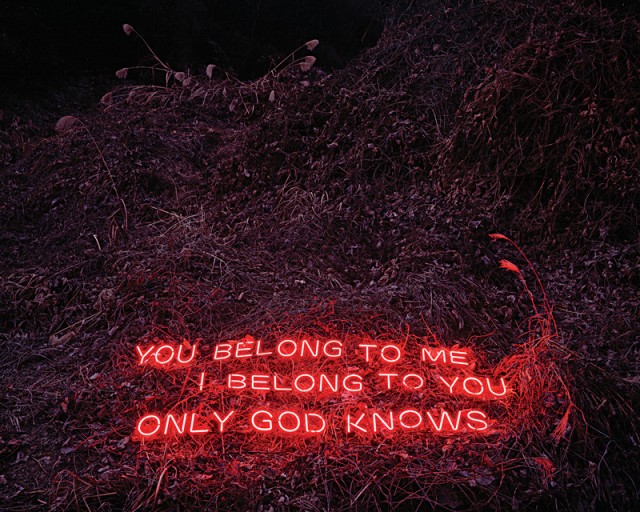
In an interview with Nara Shin for Cool Hunting, Lee states:
I like tossing out questions like “Why” into the air and thinking about it. I also like to hypothesize about “If’s” as well. The starting point of a good work is inside the depth of the artist’s experiences and thoughts.
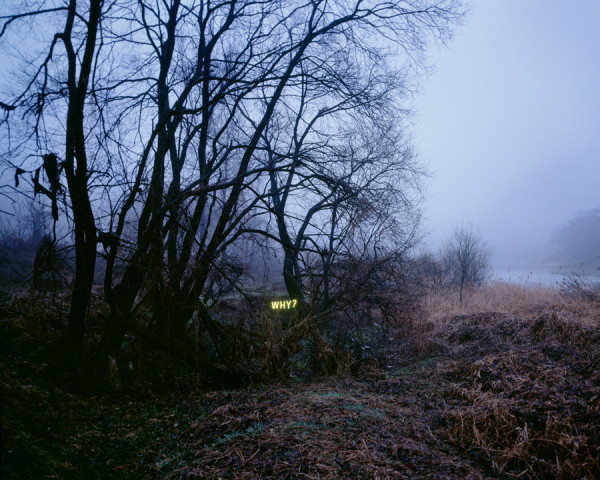
Lee’s use of common romantic phrases are borrowed from Roland Barthes A Lovers Discourse and, when paired with the barren landscapes, highlight their banal or cliched nature, throwing them into the void. However, when read by the audience, in the viewers mind, it immediately becomes their own. Saying these words in ones mind, in the bleak tone of the photographs means Lee reaches into the viewers private, subjective experiences to derive deeply personal meaning and allows for the throw away words to gain weight.
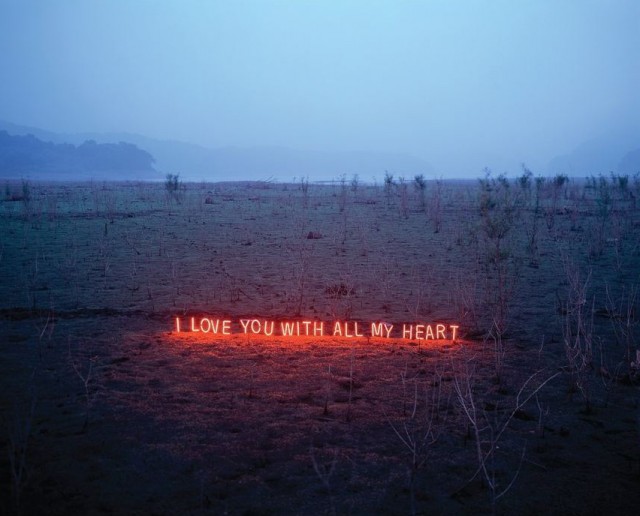
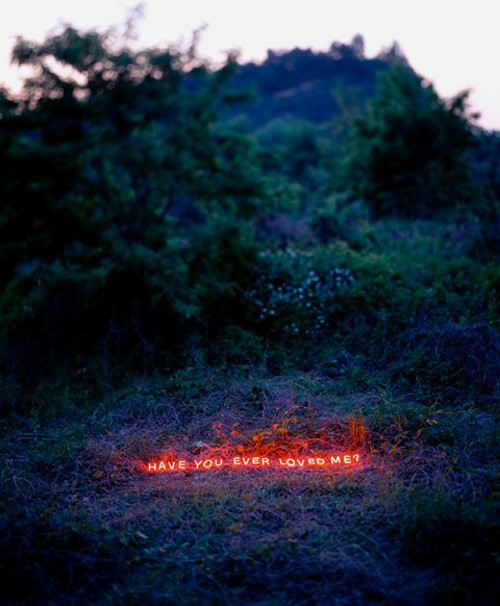
With a background in journalism, Lee has learned to balance subjectivity and objectivity in her work. However, she retains that
“an artist’s path is like a long marathon, and I think you can only run tirelessly if you listen more attentively to what’s inside—the less tangible—and rise above by battling with yourself”
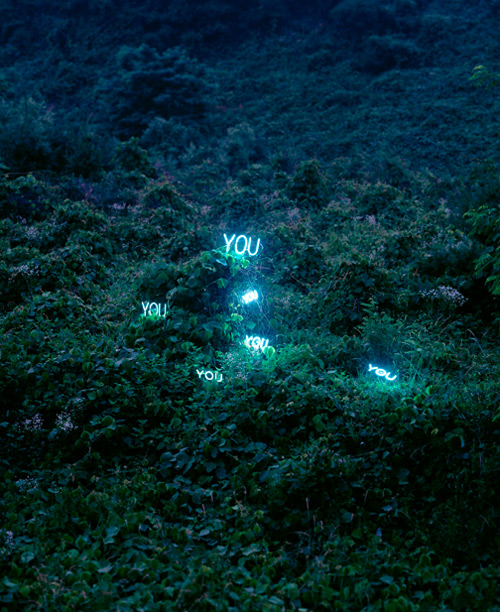
Jung Lee’s series Aporia takes recycled phrases that in many ways have lost their meaning and reimagines them through light and darkness. Taking from her own personal experiences and those of her friends before realising the global nature of their meaning allows for a uniquely subjective and universal experience. And that experience is one of time, love, and pain.
